Ceará is the fourth most advanced state in post-enumeration
December 07, 2022 19h34 | Last Updated: December 19, 2022 18h42
As one of the stages of the 2022 Population Census, the Post-Enumeration Survey (PPE) aims at assessing coverage and measuring the quality of the census operation. The post-enumeration collection has been carried out throughout the country since the month of August, taking place right after the end of the regular collection in the selected sectors.
At the State Superintendence of IBGE in Ceará (SES/CE), the PPE is on in 214 enumeration areas, which correspond to more than 1% of the state's total (19,810 enumeration areas). According to data from December 5th, Ceará already has 59.1% of the Post-Enumeration Survey completed, being the fourth most advanced state in the progress of the survey, only behind Piauí (74.0%), Sergipe (69 .0%) and Maranhão (66.3%), and appearing well above the national average (42.4%).
What is the Post-Enumeration Survey?
Failures are inevitable in large-scale statistical operations such as the Population Census, which involve complex logistics, with thousands of people in the field, complex equipment and systems, etc. The PPE comes into play precisely to identify and measure possible divergences, pinpoint where failures may be occurring, guide the user on how to properly apply the data, in addition to providing elements so that improvements can be implemented in subsequent census operations.
Therefore, the PPE does not seek to eliminate possible inaccuracies in the current Census, but its results are useful for transparency on the results. “It's like a kind of audit. Because, unlike supervision, which occurs during the collection process and seeks to correct the data at the moment the Census is being carried out, in the PPE we are not trying to correct it. The purpose of the PPE is to guide the use of the final product, and it does not change the result”, observes Ms. Gisella Colares, who is the PPE Coordinator at SES/CE.
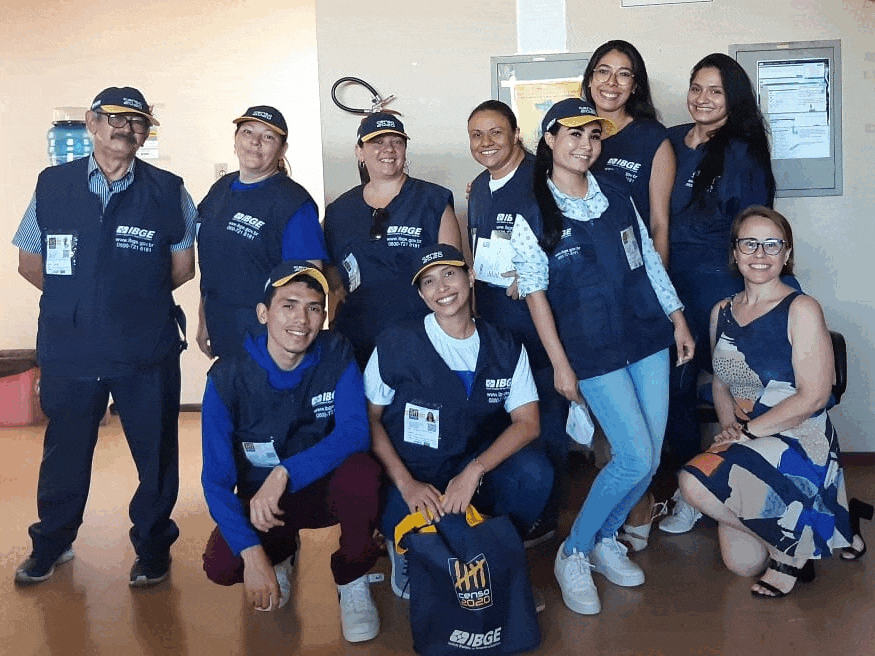
PPE team in Ceará performs an important task verifying the quality of the 2022 Census
Like the Census, the PPE also uses the methodology of household interviews, but there are many important differences between both operations. While the Census proposal is to cover 100% of households, the PPE is a sample survey, which covers a portion of the enumeration areas, although it covers all households of those areas. Regarding the choice of areas, Ms. Colares explains: “they are defined by a statistical model, which is designed according to pre-defined parameters and the level of significance necessary to validate this survey.”
Another difference is that, while the Census has two types of questionnaires, the basic and the sample, the PPE has a single questionnaire, aimed precisely at measuring the quality of the data obtained in the regular collection. This questionnaire is smaller, containing questions aimed at identifying the variables considered essential to provide good information for the Census, such as: date of birth, sex, self-declaration of color or race, etc. “Those variables that are central to all types of public policy, and also to the private sector, to see the consumer market”, completes the Coordinator.
The reference date for PPE questions is also different: the day on which the interview is carried out is considered, and not July 31, 2022, as occurs in the Census. “Some specific questions will also be asked, seeking to understand any movement that may have happened between the Census reference date and the PPE reference date. These data are registered in our questionnaire, and we will identify if there was any divergence”, concludes the servant.
Strategies to overcome difficulties
As it is also a household survey, the PPE ends up dealing with the same difficulties faced by the Population Census. “The budget issue, human resources, infrastructure… We had to talk a lot within the teams to work well and leave nobody behind”, explains the PPE Coordinator. All this addded to challenges of the field work itself, which demands itself much from the teams: “You go out into the sun, face the heat. Depending on the place, you will not be welcome by people. And we have to know not to take it personally, not let it get to us”, mentions Ms. Colares, who has even participated in these home visits.
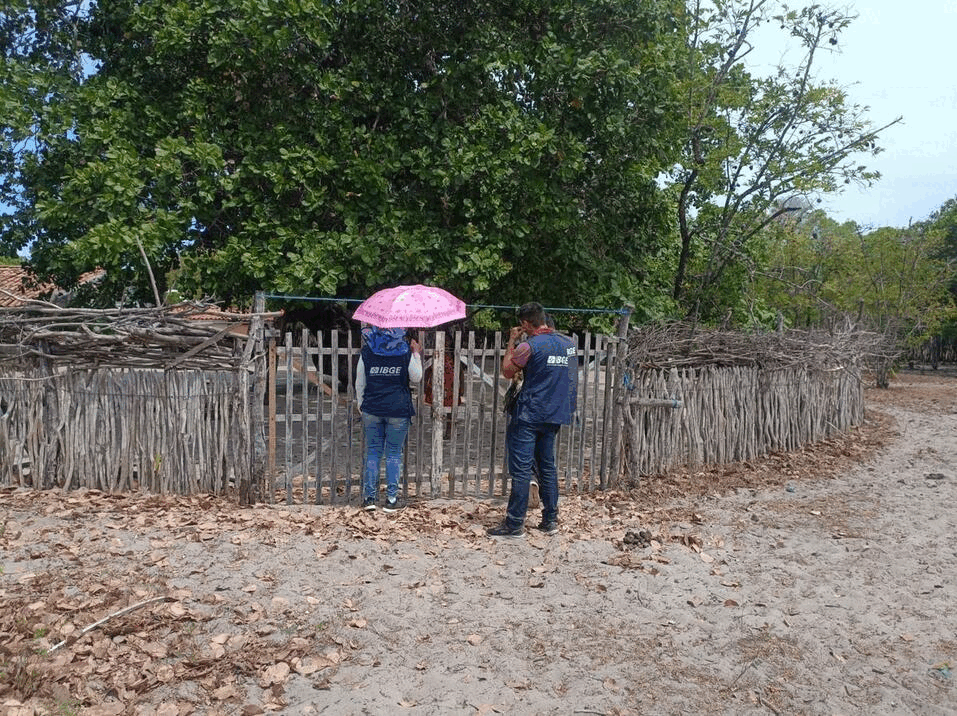
In the field, PPE faces challenges that are already part of the 2022 Census routine.
Besides the ordinary obstacles, the PPE has very specific demands, which make its challenge even greater. Bianca Real, Census Analyst and PPE Assistant in Ceará, who worked as survey supervisor in 2021, during the National Population Census Test, points out, from her experience, that the greatest difficulty in collecting post-enumeration is having to come back to the household already visited: “People get confused, as the enumerator has already been there and even the supervisor. So they always ask: 'How am I going to know if it's really the Census, if they've already been here to my house?'”
The Analyst explains that the repeated visits to the same household make people frown, while others think that the enumerator made a mistake and has to come back to make things right. In addition, there are those who simply get bored with having to answer the survey again. To get around these difficulties, Ms. Colares says that the first attitude is to reassure the resident: “In every home we go, we need to explain what the PPE is. We have to explain that it is a quality survey and that this feedback is really part of our methodology.”
Sometimes, however, this brief explanation will not be enough to make the resident interested in answering the IBGE survey again. With that in mind, the PPE team in Ceará has developed a great approach strategy: “We are using analogies to highlight the importance of this quality survey. When the person refuses to participate, we try to reason according to their situation and needs”, clarifies Ms. Natália Cavalcante, who is a Supervisory Census Agent (ACS) of the PPE, and is helping both in the field and in the administrative work.
According to this strategy, more effective than exposing what PPE is in technical terms would be to explain it based on the type of knowledge and experience that respondents themselves demonstrate to have. For example, in a neighborhood with a higher number of elderly people, it is interesting to say that PPE is like a medical exam that needs to be repeated to check if its result is correct. For a housewife, a good point is to say that PPE is like a quality test, similar to the one that needs to be carried out on household items such as a slow cooker. “We contextualize the explanation according to the person's life, and they are sensitized. We manage to break most refusals in that first approach”, celebrates the CHA, who considers that the methodology has helped a lot in the collection.
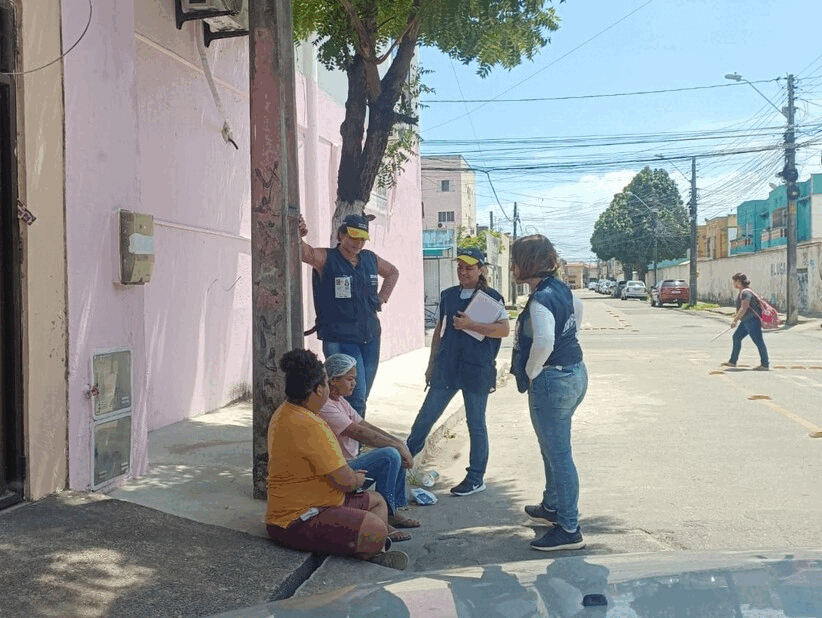
With a lot of talk and empathy, the PPE team in Ceará goes on overcoming refusals.
There are cases, however, in which no reasoning is able to undo the resistance of the resident. “Sometimes the respondent is not having a good day and does not want to answer. So we have to be patient, understand and come back as soon as they become available”, observes Analyst Bianca Real. “We don't go beyond the line of respect when we see that the person really doesn't want to engage. But these are few cases, and we have already managed to break amazing refusals”, completes Ms. Cavalcante. Despite the many difficulties faced, Ceará has a rate of only 0.76% of households without an interview in the areas that have already completed the post-enumeration collection.
Revealing the secrets to a successful outcome
The good performance that PPE has been having in Ceará can be attributed to several factors. Analyst Bianca Real points out a first, quite logical reason why post-enumeration collection is going well in Ceará: the fact that regular Census collection itself is also well advanced in the state. “For the PPE to work on its areas, these must first be worked on in the Census. So we depend a lot on the conclusion of the Census so that the PPE can start”, explains the Analyst. With 75.6% of the enumeration areas already registered and 22.1% in progress, Ceará is currently the tenth most advanced state in the country in the collection of the Population Census, which directly reflects on the progress of the PPE.
Coordinator Gisella Colares also reminds us of the importance of planning in each of the stages of the operation. This concern starts in the beginning, still in the composition of the group, which was formed well in advance (in 2021), and is one of the PPE teams in the country with the largest number of members (five assistants). “We had a whole year to plan, study the areas, make flowcharts and build working methods and tools that could help us. In addition, the fact that we have a team with sufficient members, who can distributed in terms of responsibilities and areas equally. This demonstrates the commitment that the Superintendence of Ceará as a whole had with the PPE”, reports Ms. Colares, who also highlights the importance of dialogue and support from the Census Coordination for the success of the post-enumeration operation.
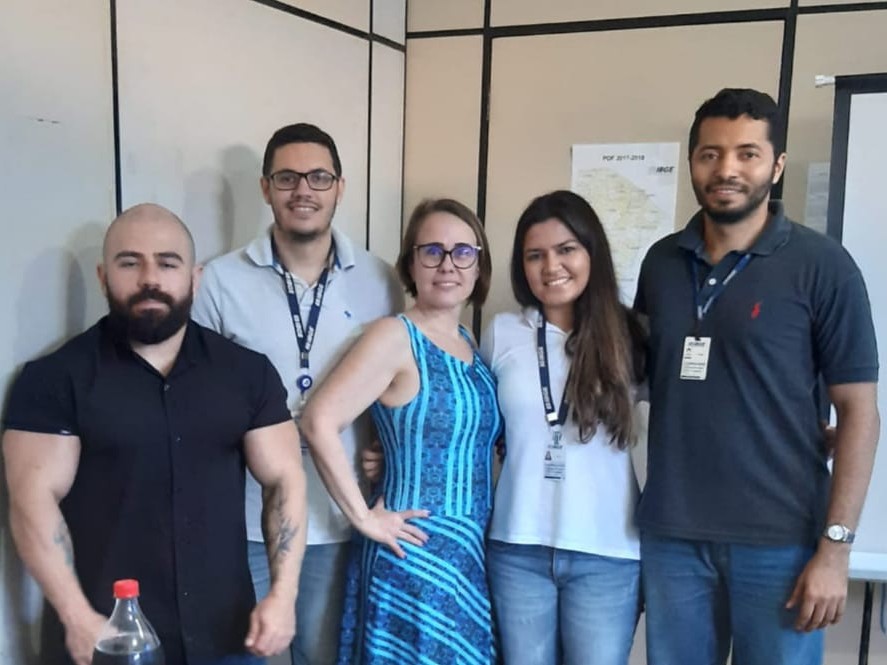
The PPE team in Ceará, which has five assistants, was formed in 2021
Supervisor Natália Cavalcante mentions as positive the group's dedication, which, in addition to the five assistants, now has also 45 more ACS from across the state, who were trained in August 2022 to work in the PPE. “Our team is very well structured. Each one of us has our particularities, and we got together very well, because what lacks in one the other has. And we all have that same determination to do a job well done even in such short time. Our leaders are also always present, answering questions and managing to resolve difficulties so that we can reach our goal”, comments the Supervisor, who says she is very pleased to be part of this team.
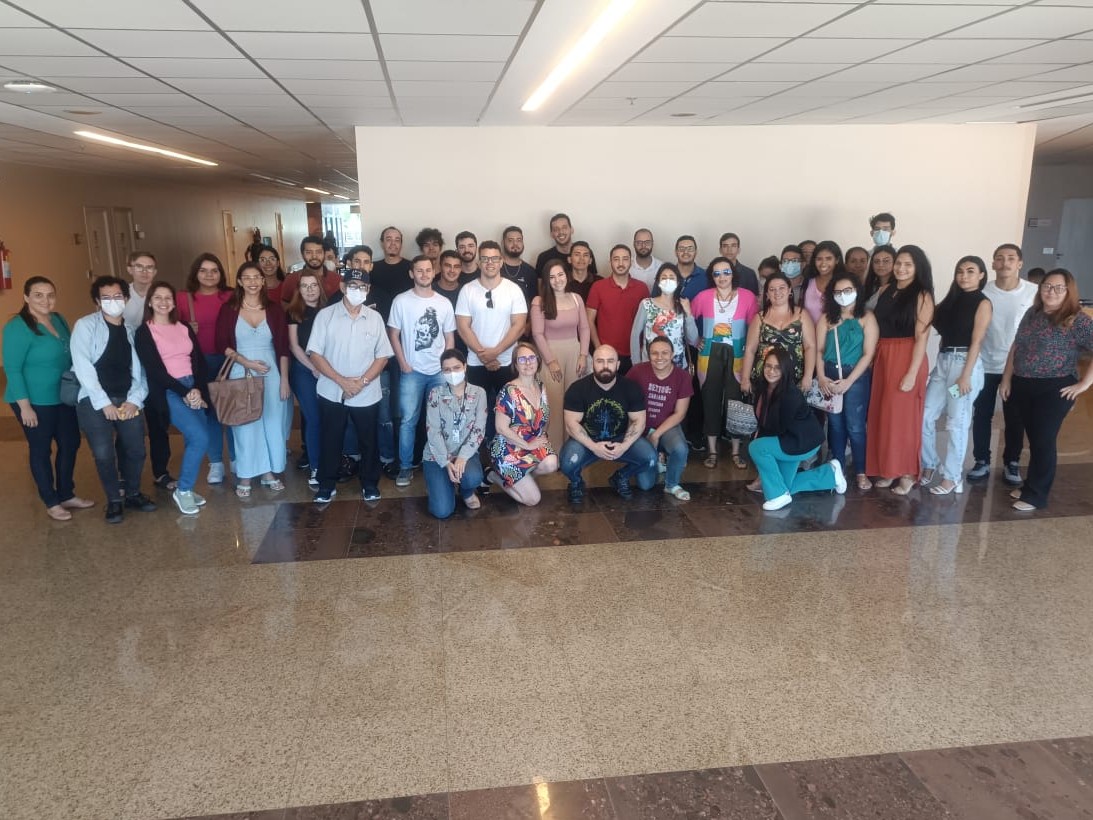
In August 2022, the PPE team added 45 ACS, trained to supervise the collection
“Planning, hard work and, above all, conscientious work”, summarizes Coordinator Gisella Colares, who points to this formula as the reason for the successful work. “It's not just for the good result, to be the first at something. But it's because we know the purpose of it, what's the reason of what we're doing. And I tried to make each person on the team aware of the importance of attitudes, controls and methods that we are using”, she completes. About the good result that Ceará has achieved in relation to other states, she concludes: “I would like everyone to have had the same conditions that we had to carry out the PPE. We always have to think that the ideal is for all of us to be able to do our best, because our work is a collective product.”
